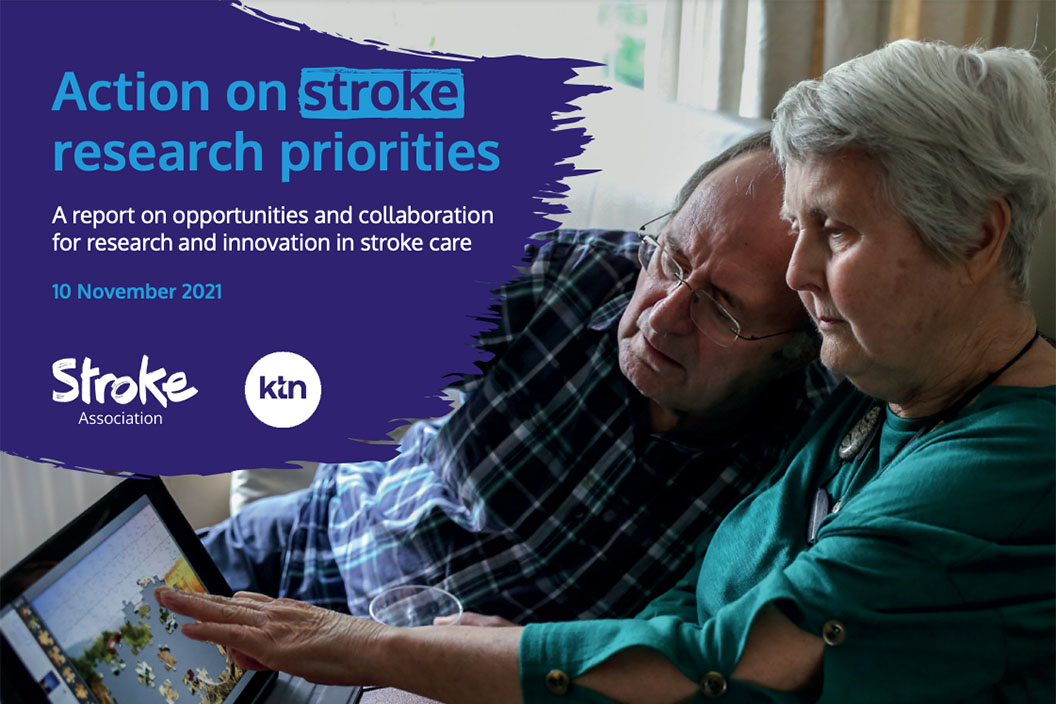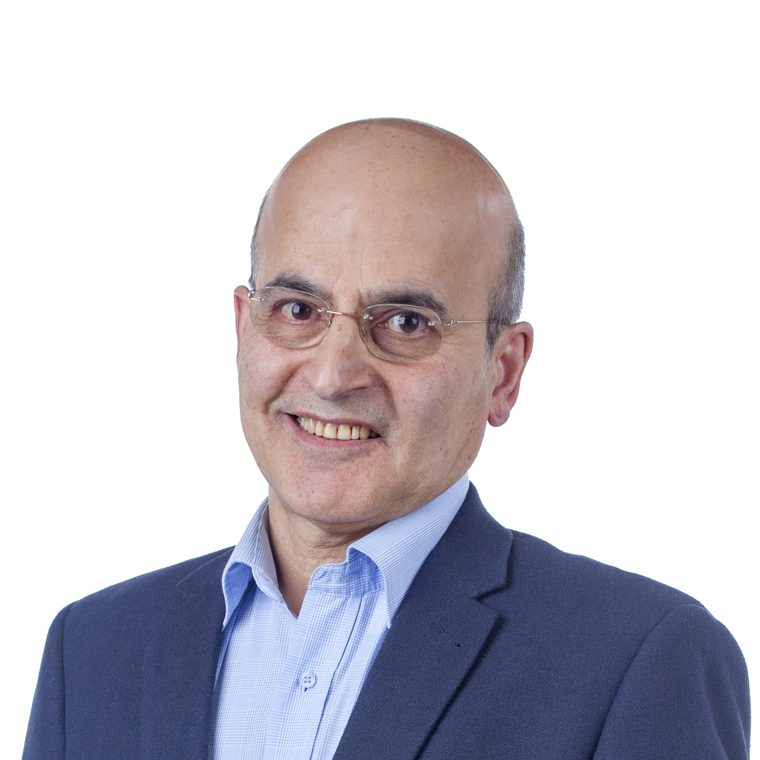The Stroke Association & KTN Release “Action on Stroke Research Priorities” Report

The report follows an event that KTN and the Stroke Association recently held on opportunities and collaboration for research and innovation in stroke.
On Wednesday 20th October 2021, the Stroke Association and KTN held an event, titled “Action on Stroke Research Priorities”, bringing together industry, academia, clinicians, funding and supporting organisations with expertise in stroke research, innovation, and care to share the current knowledge and develop new collaborations and partnerships. The event was initially proposed to the Stroke Association by Professor Mehdi Tavakoli from KTN, based on a similar event that he designed and organised with Asthma UK in 2017 . The event was carefully designed to bring many key opinion leaders from academia, clinicians, industry, funding and supporting organisations to agree on top priority areas and to initiate new collaboration opportunities. The Stroke Association and KTN have subsequently released a report on the findings of the event, including key messages and themes in the talks and workshops. The event focused on progressing research in areas of unmet needs identified by the Stroke Priority Setting Partnership (PSP).

The report outlines the impacts of stroke in the UK as well as the impact of the Covid-19 impact on stroke survivors. Juliet Bouverie OBE, CEO of the Stroke Association, opened the event, explaining why the need for action is paramount: there are 100,000 stroke diagnoses each year in the UK with 1.3 million stroke survivors living here, two thirds of whom live with mental and physical challenges. 85% of carers don’t get the support and information required to help survivors, while 50% of stroke survivors had appointments cancelled or postponed due to the Covid-19 pandemic.
KTN’s Prof. Mehdi Tavakoli helped set up the event and during the morning session, Mehdi introduced KTN’s mission to support innovations to deliver economic growth by bringing together businesses, entrepreneurs, academics, clinicians, charities, and funders to develop products, processes, and services. He covered the health areas of focus: Med Tech, Digital Health and Care, and Medicines, and emphasised the growing need to break down silos to innovate care for people living with multi-morbidity. He explained how KTN promotes collaboration opportunities including helping companies to engage and collaborate with academics, clinicians, and charities to address unmet clinical needs, access funding, and accelerate translational research towards product developments and faster routes to market for patients benefits.
Mehdi also facilitated the afternoon workshop sessions on action on stroke research priorities, aiming to collate insights and initiate new stakeholder contacts for collaborations to take action and address research uncertainties. Led by research experts and facilitators, the workshops focused on Stroke PSP priorities across the stroke care pathway. Prof. Mehdi Tavakoli introduced workshops emphasising the importance of support for new collaboration and partnership opportunities to address many unmet clinical needs in stroke.
The insights and project proposals generated in workshops will be taken forward by the Stroke Association, KTN and stakeholder participants. Multi-disciplinary and cross-sector collaboration will lead to addressing evidence uncertainties identified by the Stroke PSP. Funders and supporting organisations have identified existing funding and collaboration opportunities relevant to stroke research. However, the Stroke Association and KTN hope to see funding increased and further opportunities available to support research and innovation in stroke care.
The Stroke Association and KTN endeavour to support potential collaborative projects identified during the workshops and would be pleased to hear from any organisations who can support us to address challenges described in this report.
A range of industry stakeholders presented their areas of innovation and appealed for collaborators to take them further. You can find out further details within the report, but organisations involved included: Brainomix, who have developed clinically available AI for accelerated imaging assessment in acute stroke (e-Stroke); Neurofenix, who have developed an at home therapy device and digital platform for upper limb rehabilitation; and Athersys, who have developed MultiStem® Cell Therapy as a regenerative medicine approach to treat stroke patients.

""I am one of the 1.3 million stroke survivors in the UK and now with a clear steer for the future of research, I urge funders, academics, industry, clinicians and stroke survivors like myself to take this agenda forward.""
- Professor Ade Adebajo, Stroke survivor involved in the Stroke PSP,
Speakers from organisations that fund research and innovation, and supporting networks, emphasised the variety of opportunities in the UK, and what they could offer researchers and industry. Key messages emerged around understanding and aligning with expertise and strategic goals of funders and approaching organisations for advice. For instance, Dr Ian McKay at Innovate UK emphasised their lead in realising the Government’s industrial strategy and R&D expenditure targets by supporting businesses. He presented the Cell and Gene Therapy and Digital Catapults Networks, and the EDGE infrastructure, a free service tailored to business needs in supporting innovation in stroke care.
We have received messages from many speakers and delegates appreciating how useful the event was in initiating many new collaboration opportunities. For example, Dr Kadem Al-Lamee, the CEO of Arterius Ltd., wrote “I found the event very informative and benefited from all the presentations by speakers. At Arterius we are in the process of developing a mechanical thrombectomy device and the workshops gave me the opportunity to identify and better understand unmet clinical needs in stroke and network with potential collaborators in academic and clinical research and industry.”
To find out more on the Stroke Association, please click here
If you’re interested in getting in touch with Prof Mehdi Tavakoli, then you can do so here, or find out more about our Health Team here.


